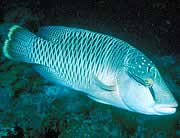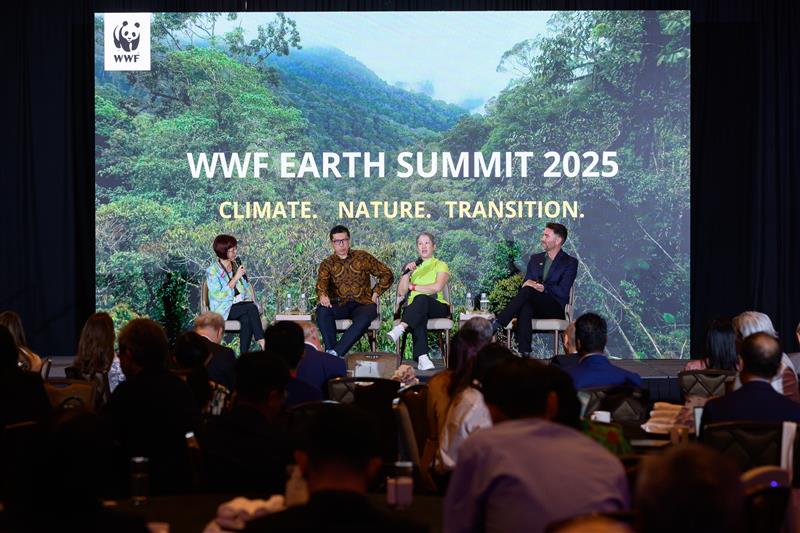Manado, Indonesia – Indonesian airport authorities have seized 36 humphead wrasse, the third seizure of this endangered fish species in the country this year alone. The live fish, harvested in Indonesia, were destined for Hong Kong.
“Indonesia remains a major supplier to Hong Kong and other end-use markets, which drive demand for this high-value reef fish,” said TRAFFIC Southeast Asia Regional Director James Compton.
Prized as a delicacy and served in high-end restaurants, humphead wrasse can sell for over US$100 per kilogramme in the market place. Hong Kong represents the largest known consumer market for this species, although upscale eateries in Malaysia, Singapore and mainland China are also known to offer servings of the electric blue fish.
Found among the coral reefs across Southeast Asia, the Western Pacific and the Indian Ocean, the humphead wrasse can grow to over two metres long, weigh up to 190kg and live for more than 30 years. The trade in this species, however, is selective, with smaller sized individuals, including many juveniles, preferred over full-grown adults because the flesh is considered more tender. Smaller fish are better suited to the restaurant trade that prefers to serve whole fish. The species is typically traded live.
Indonesia allows an annual capture of 8,000 individual humphead wrasse — none for local consumption, all for export — and fish harvest is only permitted in specified areas, including Papua, Maluku, East Nusa Tenggara and West Nusa Tenggara.
“The challenge for Indonesia is to develop a workable strategy for monitoring the trade and improving law enforcement,” Compton added, “otherwise the fishery cannot be managed for the long-term benefits of local and national interests.”
Indonesian representatives recently joined authorities from Hong Kong, China, Malaysia, Papua New Guinea and the Philippines to discuss the international humphead wrasse trade. Participants attending the workshop — co-organized by WWF, TRAFFIC and IUCN — agreed to develop science-based guidelines for sustainable resource use of the humphead wrasse, as well as promote regional cooperation and increased awareness of the trade among the fisheries industry and consumers.
“Cooperation between countries and by the relevant fisheries and management authorities within source countries is key to the successful implementation of a CITES listing for the humphead wrasse,” said Dr Yvonne Sadovy of the University of Honk Kong and Chair of the IUCN Groupers & Wrasses Specialist Group.
The humphead wrasse (Cheilinus undulates) is listed on Appendix II of the Convention on International Trade in Endangered Species of Wild Fauna and Flora (CITES). This means international trade in the species is possible only with valid CITES permits. The CITES Appendix II listing helps supply and consumer countries to ensure that the trade in the species is both legal and sustainable.
At present, Hong Kong has not implemented the CITES Appendix II-listing for humphead wrasse, and as a result, the fish species can be legally imported. New legislation, however, is expected to require both import and possession permits in Hong Kong, in addition to the CITES permits that must be issued by exporting countries.
“If the species is sustainably managed and traded, then the situation is win-win,” Sadovy stressed. “Traders can continue their business, consumers can eat the fish, and fish populations can once again be healthy for all to enjoy.”
For more information:
James Compton, Regional Director
TRAFFIC Southeast Asia
Tel: +6(03) 7880 3940
Email: james.compton@po.jaring.my
Yvonne Sadovy, Chair
IUCN Groupers & Wrasses Specialist Group (Hong Kong)
Tel: +852 2299 0603
Email: yjsadovy@hku.hk
Maija Sirola, Communications Coordinator
TRAFFIC International
Tel: +44 1223 277 427
Email: maija.sirola@trafficint.org















